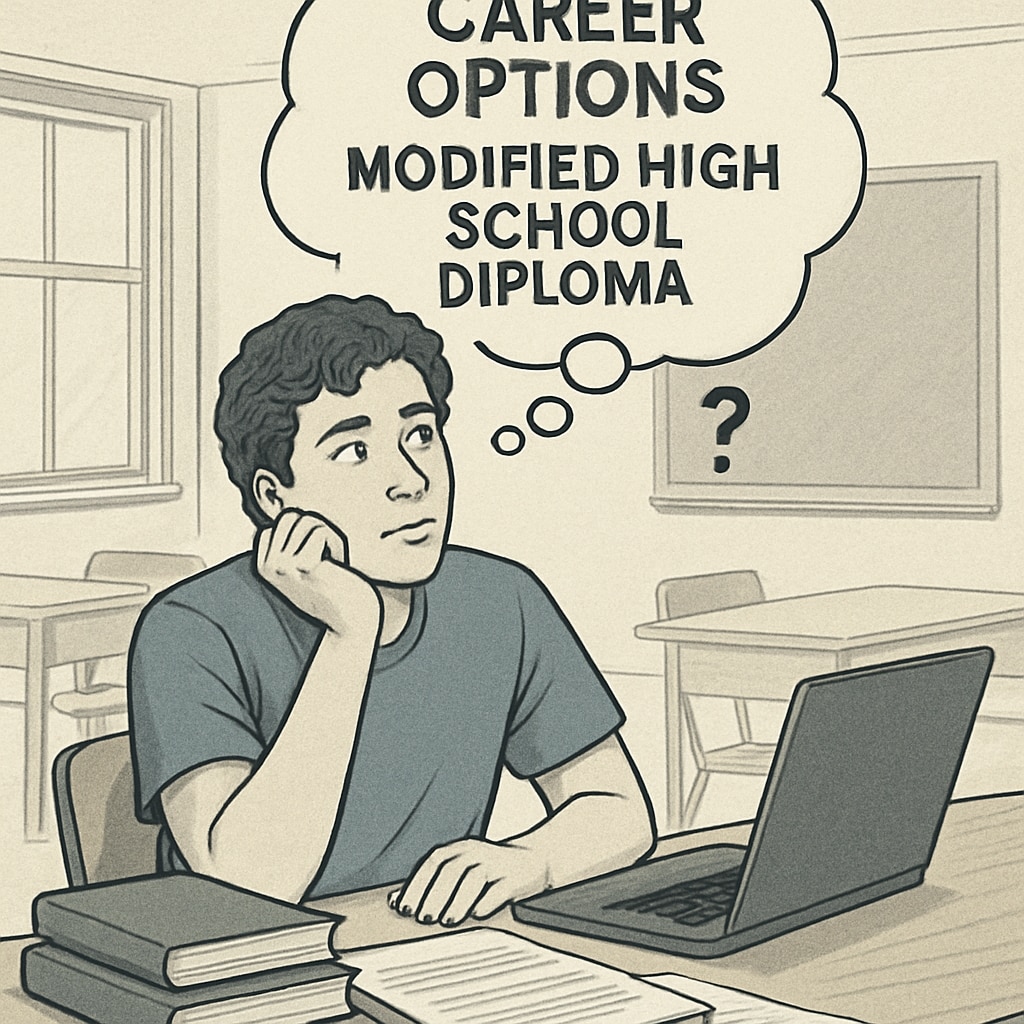Graduating with a modified high school diploma can sometimes lead to feelings of regret and uncertainty about one’s future. Whether prompted by academic challenges, personal circumstances, or institutional policies, this educational choice may leave individuals questioning its long-term impact on their career and life. However, regret doesn’t have to define your journey. There are actionable steps and transformative opportunities to shift your trajectory and achieve personal and professional growth.

Navigating Regret After High School Graduation
Regret is a common emotion for those who feel their modified high school diploma may limit their opportunities. Often, this regret stems from societal perceptions that prioritize traditional diplomas. For example, certain college admissions or job postings may appear inaccessible, leaving graduates feeling stuck or disillusioned.
However, regret can be a powerful motivator for change. Transforming feelings of inadequacy into actionable plans starts with shifting your mindset. Embrace the idea that education is not a one-size-fits-all journey. Many successful individuals have overcome perceived setbacks by focusing on their strengths and exploring alternative pathways.
Understanding the Long-Term Impact of Education Choices
A modified high school diploma, while different from a standard diploma, does not necessarily dictate your future success. The long-term impact depends on how you leverage available resources and opportunities. For example:
- Higher Education: Many colleges and trade schools accept students with modified diplomas, particularly if they demonstrate motivation and commitment.
- Skill-Based Careers: Industries like technology, creative arts, and trades often prioritize skills over formal education credentials.
- Personal Development: Investing in certifications, workshops, or online courses can help you build a competitive edge.
While the road may seem unconventional, countless resources exist to support individuals with alternative educational backgrounds. Leveraging these resources can help reduce the perceived disadvantages of a modified diploma.

Transformative Opportunities and Practical Solutions
If you’re feeling stuck, consider these practical solutions to redefine your path:
- Enroll in Community Colleges: Many community colleges have open admissions policies and offer bridge programs for students seeking further education.
- Learn a Trade: Trade schools and apprenticeship programs focus on practical skills, often leading to lucrative careers.
- Explore Online Education: Platforms like Coursera, Udemy, and LinkedIn Learning offer courses that can enhance your resume and skillset.
- Network Strategically: Building professional connections can open doors to opportunities that value experience and potential over credentials.
In addition, developing a growth mindset is key. Mistakes and unconventional choices are not failures; they are stepping stones toward a more tailored and meaningful path. With determination and focus, you can turn your regret into resilience.
Moving Forward: Adjusting Your Perspective
It’s easy to dwell on past decisions, but focusing on future possibilities is far more productive. Consider the following tips for adjusting your perspective:
- Set Achievable Goals: Identify short-term objectives that align with your interests and strengths.
- Seek Support: Connect with mentors, counselors, or peers who can provide guidance and encouragement.
- Celebrate Progress: Acknowledge small wins to maintain motivation and build confidence.
Ultimately, a modified high school diploma doesn’t define your worth or potential. By exploring opportunities, embracing lifelong learning, and maintaining a positive outlook, you can carve out a fulfilling and successful career path.
Readability guidance: This article uses concise paragraphs, lists for clarity, and emphasizes actionable advice. It avoids excessive passive voice, keeping the tone empowering and forward-focused.


